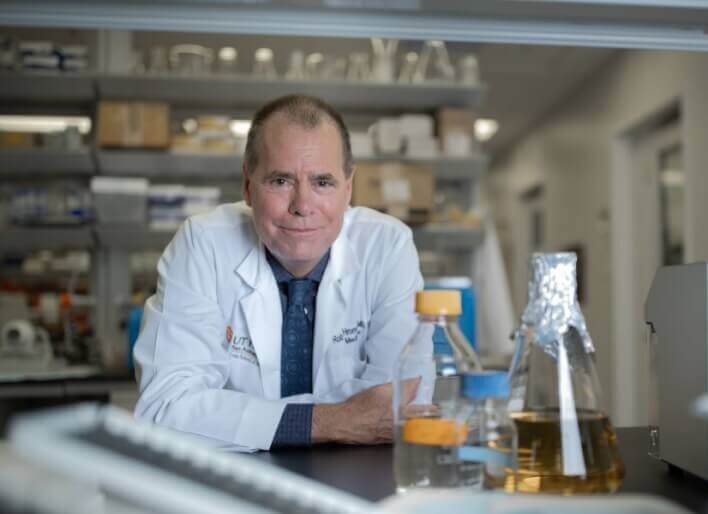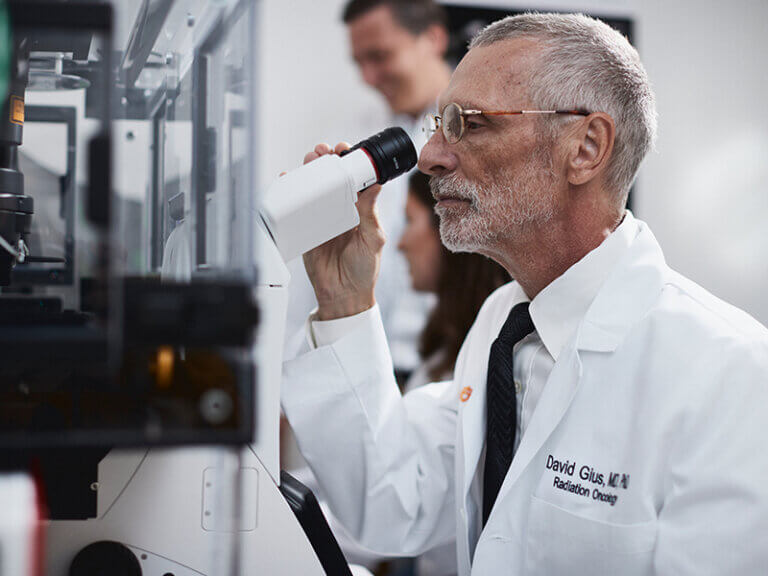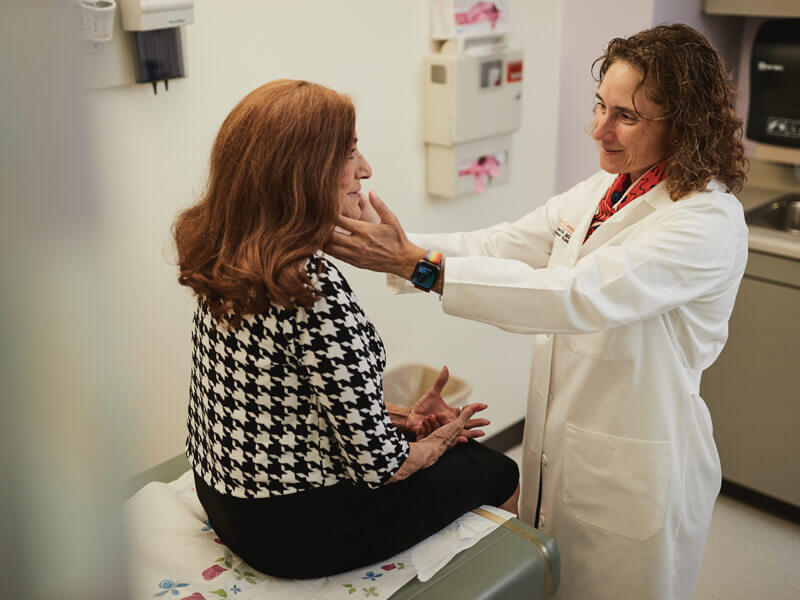“We applaud our patients. They are the true heroes in what we do.” —Virginia Kaklamani, MD, DSc, Mays Cancer Center at UT Health San Antonio
Could a drug prescribed for transplant recipients also help some women beat breast cancer? Impressive new findings point to this possibility, according to research conducted at The University of Texas Health Science Center at San Antonio (also called UT Health San Antonio).

Kimi Kong, PhD, and Robert Hromas, MD, FACP, who made the observations, are working with Virginia Kaklamani, MD, DSc, to offer a clinical trial of the drug, cyclosporin, at the Mays Cancer Center at UT Health San Antonio. The Mays Cancer Center is the only National Cancer Institute-designated Cancer Center in South and Central Texas. Drug development and clinical trials are among the cancer center’s outstanding and nationally recognized programs.
In the cyclosporin study, UT Health San Antonio’s missions of patient care and scientific discovery are powerfully fused. The hope is another treatment option to help our mothers and daughters, sisters and aunts, neighbors and friends. Breast cancer is diagnosed in 300,000 people, predominantly women, annually in the U.S., including more than 20,000 new cases a year in Texas. Breast cancer is expected to result in more than 43,000 deaths in 2023.
More information on clinical trials at the Mays Cancer Center

Kong, associate professor of medicine, and Hromas, professor of medicine and dean of the Joe R. and Teresa Lozano Long School of Medicine, found that cyclosporin kills a specific type of cancer cells. They immediately contacted Kaklamani, leader of the Breast Oncology Program at the Mays Cancer Center.
Over the next three years, Kaklamani will study cyclosporin in women newly diagnosed with one type of inherited breast cancer who have not yet received any treatment.
“These patients not only have to deal with a range of complex emotions, but they also have to make a life-altering decision of whether to enroll in a clinical study,” Kaklamani said. “We applaud them. They are the true heroes in what we do.”
Cyclosporin has a track record of safety in humans dating back four decades. The U.S. Food and Drug Administration approved the drug in September 1983 to prevent the rejection of transplanted organs. Kaklamani’s challenge is to define the best use of this drug in a new population of patients.

“We know the dose for transplant patients, but we are not using the drug for transplantation,” she said. “Should we be using the same dose for our cancer patients? This study will answer many questions.”
As findings are made by Kong, Hromas and the research team, they are communicated to Kaklamani and the clinical team at the Mays Cancer Center. “The patient is always the focus of the work being done in both the lab and the clinic, as it should be,” Kaklamani said. “Curing cancer in a lab is great, but it’s not the ultimate goal. Curing cancer in patients is.”
The clinical trial is supported by funding from the National Institutes of Health and the Mays Cancer Center. For more information, visit cancer.uthscsa.edu/clinicaltrials.


